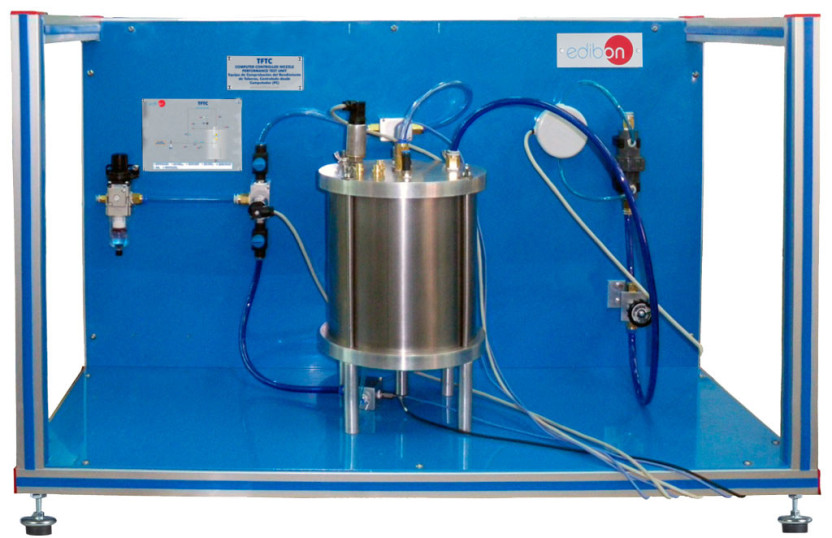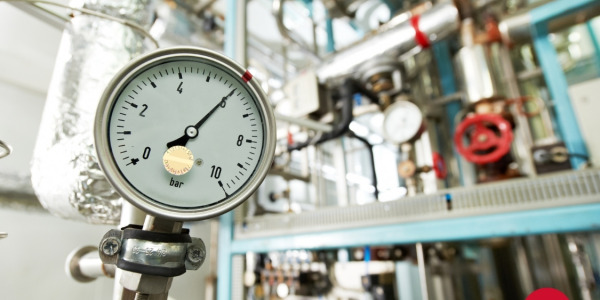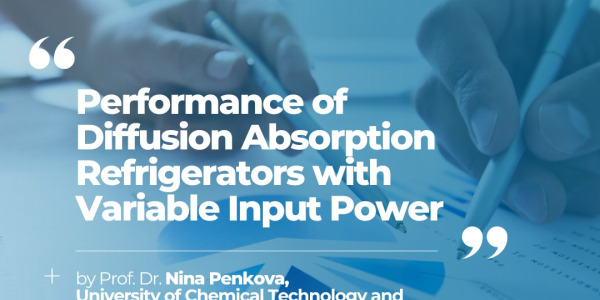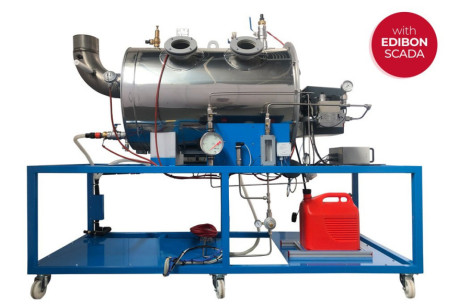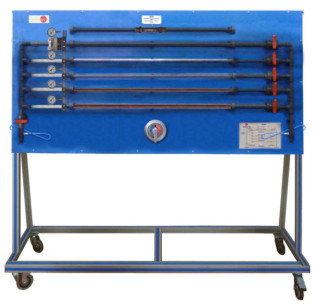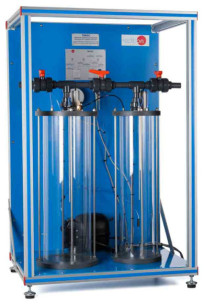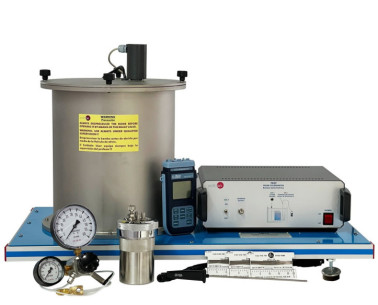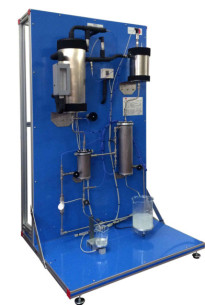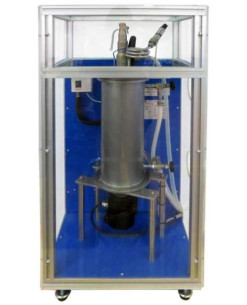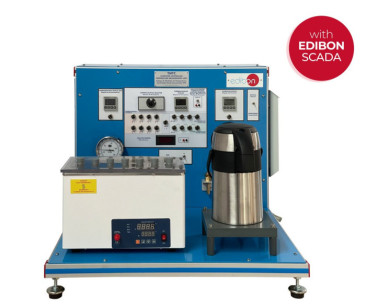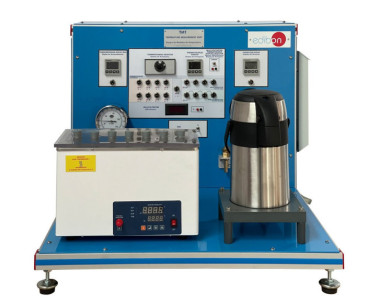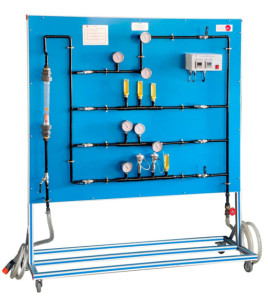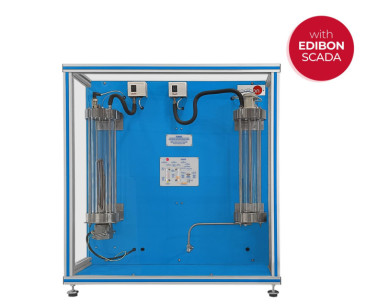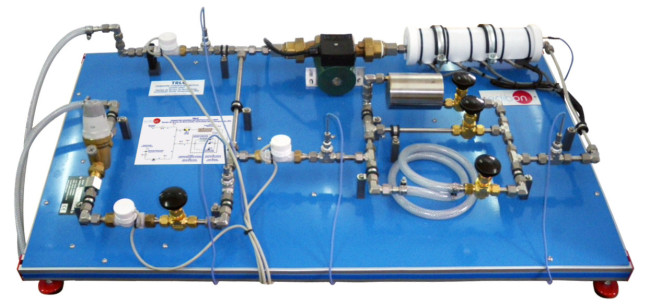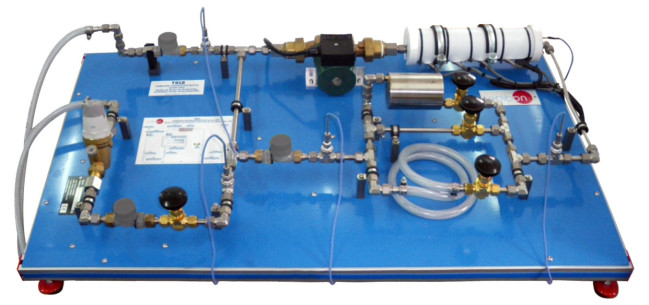TFTC Unité de Test des Performances des Buses, Contrôlée par ordinateur (PC)
SYSTEMES INNOVANTS
The Computer Controlled Nozzle Performance Test Unit, "TFTC", has been specially designed to allow students to investigate and study the performance of a nozzle (kinetic energy and thrust).
Expansions
Laboratories
NOUVELLES LIÉES
Description Générale
The Computer Controlled Nozzle Performance Test Unit, "TFTC", has been specially designed to allow students to investigate and study the performance of a nozzle (kinetic energy and thrust).
Operating from a normal laboratory compressed air supply, the unit is supplied with one convergent and four convergent-divergent nozzles that can be rapidly interchanged.
This test unit consists of a pressure chamber, with two supports for the nozzles, and a force sensor in its bottom support. Depending on how the user wishes to work, the nozzle will be fixed to the bottom or to the top support. On the side in which the nozzle has not been fixed, the user will put the lid on which the air will fall. This lid makes a system that allows the air to be separated from it as soon as the air has impacted tangentially on the incidence direction, not on the anti-paralell direction to the incidence direction. Thus, the measured force will be only the incident one, without any kind of reaction due to the "rebound" of the jet.
By means of a valves system the user will be able to obtain that the air comes into the chamber in its bottom or in its top part. Besides, the pressure in the chamber will be controlled by a pressure control system.
Moreover, three temperature sensors are available, two at the chamber inlets and another one in the chamber. The pressure can be measured at any moment at the chamber inlet and inside, whereas a sensor in its outlet calculates the air flow that comes out from the chamber.
Finally, the impulse/reaction force made by the jet coming from the nozzle is measured by a force sensor.
This Computer Controlled Unit is supplied with the EDIBON Computer Control System (SCADA), and includes: The unit itself + a Control Interface Box + a Data Acquisition Board + Computer Control, Data Acquisition and Data Management Software Packages, for controlling the process and all parameters involved in the process.
Des exercices et pratiques guidées
EXERCICES GUIDÉS INCLUS DANS LE MANUEL
- Demonstration of the phenomenon of "choking".
- Determination of jet reaction and specific thrust at a variety of inlet and back pressure.
- Determination of inlet pressure effect on mass flow rate, for a given back pressure.
- Comparison of actual mass flow rate with the theoretical value.
- Determination of the back pressure effect on the mass flow rate.
- Nozzle efficiency calculation.
- Determination of the jet velocity and the nozzle efficiency.
- Determination of the jet reaction and the specific pushing.
- Simple and classical method used to determine jet velocity.
- Measurement of mass flow rate and coefficient of discharge.
- By means the sensors measurements we can get mass flow rate, jet speed, efficiency and pushing for a variety of nozzles operating for a wide range of pressure ratios.
- Sensors calibration.
PLUS D'EXERCICES PRATIQUES À EFFECTUER AVEC CETTE ÉQUIPEMENT
- Many students view results simultaneously. To view all results in real time in the classroom by means of a projector or an electronic whiteboard.
- Open Control, Multicontrol and Real Time Control. This unit allows intrinsically and/or extrinsically to change the span, gains, proportional, integral, derivative parameters, etc, in real time.
- The Computer Control System with SCADA and PID Control allow a real industrial simulation.
- This unit is totally safe as uses mechanical, electrical and electronic, and software safety devices.
- This unit can be used for doing applied research.
- This unit can be used for giving training courses to Industries even to other Technical Education Institutions.
- Control of the TFTC unit process through the control interface box without the computer.
- Visualization of all the sensors values used in the TFTC unit process.
- By using PLC-PI additional 19 more exercises can be done.
- Several other exercises can be done and designed by the user.
EQUIPEMENT COMPLEMENTAIRE
Unité de Pratiques en Expansion Thérmique
Unité de Processus d'Expansion d'une Unité de Gaz Parfait, Contrôlée par ordinateur (PC)
Pombe Calorimétrique
Calorimètre d'Étranglement et Séparation, Contrôlé par Ordinateur (PC)
Unité de Chaudière Marcet, Contrôlée par Ordinateur (PC)
Unité de Mesure de Température, Contrôlée par Ordinateur (PC)
Unité de Mesure de Température
Unité de Formation pour Mesures de Température
Unité des Lois des Gaz (Lois de Boyle et Gay-Lussac), Contrôlée par Ordinateur (PC)
Unité de Recyclage de Boucles, Contrôlée par Ordinateur (PC)
Unité de Boucles de Recyclage
Qualité
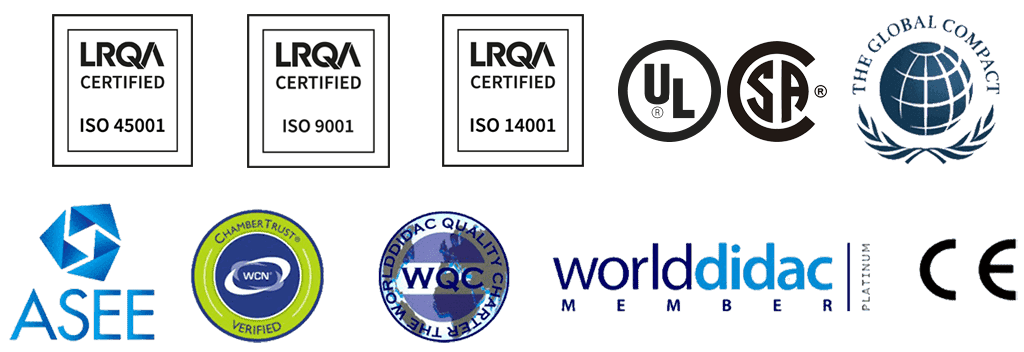
Service après vente

 Préférences sur les cookies
Préférences sur les cookies

